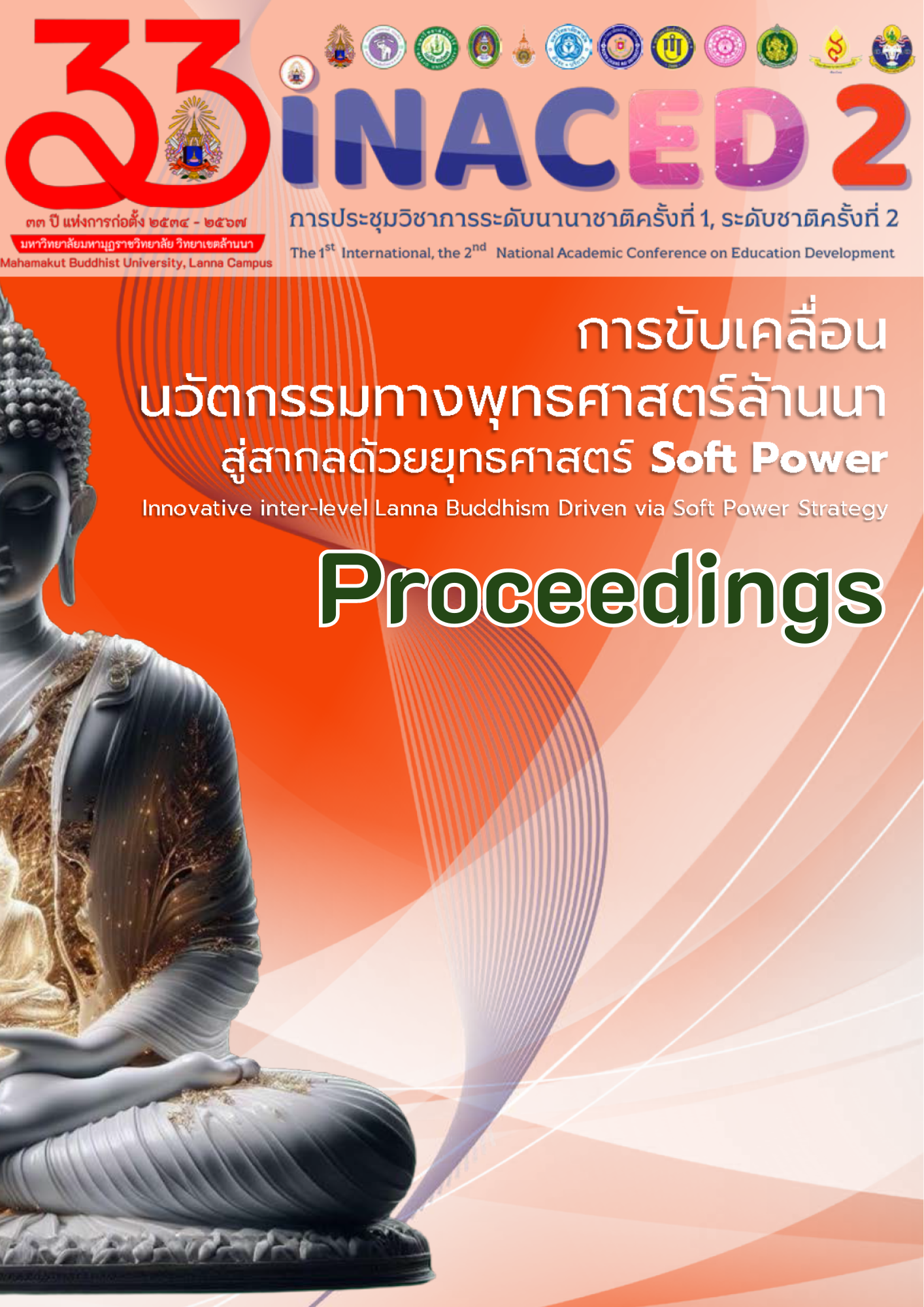การพัฒนามนุษย์ในยุคดิจิทัล
บทคัดย่อ
บทความวิชาการนี้ มุ่งเสนอแนวคิดเกี่ยวกับการพัฒนามนุษย์ในยุคดิจิทัล เป็นกระบวนการที่มุ่งเน้นการพัฒนาทักษะและความสามารถของบุคคลที่จำเป็นในยุคดิจิทัล เป็นการเรียนรู้พัฒนาทักษะสมัยใหม่ เช่น การคิดเชิงวิเคราะห์ การแก้ปัญหา การทำงานร่วมกับบุคคลและทักษะการเรียนรู้ตลอดชีวิต เพื่อให้บุคคลสามารถปรับตัวกับการเปลี่ยนแปลงที่เกิดขึ้นอย่างรวดเร็วในสภาพแวดล้อมที่เต็มไปด้วยเทคโนโลยีขั้นสูงได้อย่างเหมาะสม การพัฒนามนุษย์ในยุคดิจิทัลจึงเป็นเส้นทางสำคัญที่ช่วยสร้างสรรค์และปรับปรุงสังคมที่มีการใช้เทคโนโลยีมากขึ้นอย่างมีประสิทธิภาพและยั่งยืนได้ในระยะยาว โดยทั้งรัฐบาล เอกชน และองค์กรต่าง ๆ เป็นผู้รับผิดชอบในการส่งเสริมและพัฒนาความรู้และทักษะด้านดิจิทัลให้กับประชากรทั่วไปอย่างเข้มข้นและต่อเนื่อง ทั้งนี้ ยุคดิจิทัลกำลังส่งผลต่อการพัฒนามนุษย์อย่างมีนัยสำคัญจึงมีความจำเป็นต้องมีการปรับตัวเพื่อให้มั่นใจถึงการพัฒนาที่ยั่งยืน โดยข้อสรุปของการศึกษาชิ้นนี้เน้นย้ำถึงความสำคัญของการพัฒนาทักษะดิจิทัล แนวโน้มและปรากฏการณ์เกี่ยวข้องกับการพัฒนามนุษย์ ทักษะที่จำเป็นและวิธีการพัฒนามนุษย์ในยุคดิจิทัล การพัฒนามนุษย์ตามหลักการทางพระพุทธศาสนาเพื่อส่งเสริมการเรียนรู้ตลอดชีวิตของมนุษย์ และเสริมสร้างสังคมที่ครอบคลุมและเท่าเทียมกันเพื่อให้มั่นใจถึงการพัฒนามนุษย์ที่ยั่งยืนในยุคดิจิทัล
บรรณานุกรม
พระพรหมคุณาภรณ์ (ป.อ.ปยุตฺโต). (2559). พจนานุกรมพุทธศาสตร์ ฉบับประมวลธรรม. กรุงเทพฯ: มูลนิธิการศึกษาเพื่อสันติภาพ.
พิชญ์สินี มะโน. (2562). ผลกระทบจากการเปลี่ยนแปลงในยุค DIGITAL DISRUPTION ต่อการศึกษา. วารสารครุศาสตร์อุตสาหกรรม. 18(1). 1-6.
มณีรัตน์ ชัยยะ และเพ็ญศรี ฉิรัณยงค์. (2566). การบริหารทรัพยากรมนุษย์ภายใต้การเปลี่ยนแปลงสู่ยุคดิจิทัล (Digital HR). วารสารนวัตกรรมการบริหารและการจัดการ, 11(1), 104-115.
มหาจุฬาลงกรณราชวิทยาลัย. (2539). พระไตรปิฎกภาษาไทย ฉบับมหาจุฬาลงกรณราชวิทยาลัย. กรุงเทพฯ: มหาจุฬาลงกรณราชวิทยาลัย.
วลัยลักษณ์ คงพระจันทร์. (26 กันยายน 2562). ทักษะแห่งศตวรรษที่ 21 :อยู่รอดแม้จุดยืนมนุษย์สั่นคลอนในโลกดิจิทัลที่ไม่ย้อนกลับหลัง. ศูนย์เทคโนโลยีอิเล็กทรอนิกส์และคอมพิวเตอร์แห่งชาติ. https://www.nectec.or.th/news/news-pr-news/21st-centuryskills.html
โสมวลี ชยามฤต. (2564). การพัฒนาทรัพยากรมนุษย์เพื่อรองรับยุคดิจิทัลขององค์การภาครัฐและเอกชน.วารสารสหวิทยาการมนุษยศาสตร์และสังคมศาสตร์, 4(1), 38-50.
อรรถยุทธ คงคาวงค์. (2563). องค์กรยุคดิจิทัล: กลยุทธ์และแนวทางสู่ความสําเร็จ. กรุงเทพฯ: สํานักพิมพ์แห่งจุฬาลงกรณ์มหาวิทยาลัย.
Rahmanto, F. & Pribadi, U. (2020). Factors human resource development public organization. Economics Development Analysis Journal, 9(3), 260-268.
Swart,J.et al. (2005) . Human Resource Development: Strategy and Tactics. Oxford, England: Elsevier.

